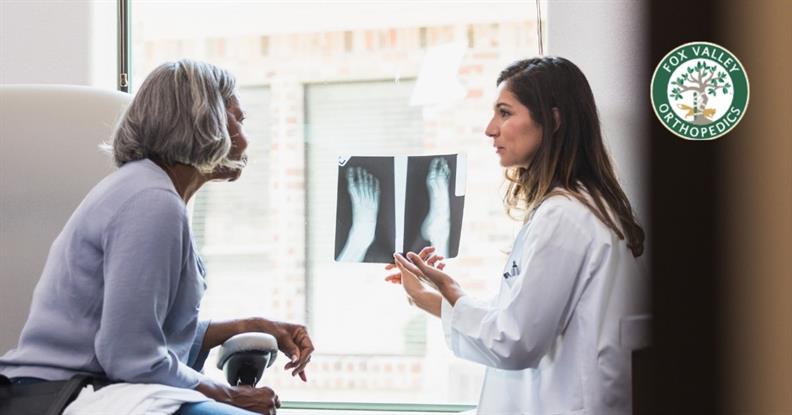Do You Need To See A Shoulder Specialist?
- Category: Blog
- Posted On:
- Written By: James Seeds, MD
By James R. Seeds, MD
Midwest Bone and Joint
On a daily basis, I’m asked questions about shoulder injuries. From “How do I know if it’s something serious?” to “Should I wait and see if my shoulder feels better?” and, very commonly, “Should I go to the Emergency Room?”
The simple answer is it’s very difficult to give advice or a diagnosis without examining the patient. If you have pain lasting longer than a few weeks or you’ve been formally diagnosed with something like a rotator cuff tear, you should be seen by a shoulder specialist. Some surgical procedures are time sensitive and other conditions can worsen over time, so the safest route is to get your shoulder examined.
The following list is by no means comprehensive or intended to replace a trip to a specialist. Following are the most common reasons a person should be examined by a shoulder specialist:
You have difficulty sleeping, particularly on the affected shoulder.
Rotator cuff tendon tears can cause pain at night that may disrupt your sleep. During the day, the pain is usually more tolerable and only hurts with certain movements. Tendonitis may also cause pain at night, especially when lying on the affected shoulder. Other symptoms of both of these conditions are weakness and loss of motion when raising the arm above your head, stiffness with lifting or movement and difficulty placing your arm behind your back.
It’s difficult to lift your arm over your head or reach backwards.
If you have had pain doing something like combing your hair or tucking in your shirt for a few weeks or longer, you may have a rotator cuff tear, labral tear or another type of structural injury. Typically these injuries do not get better without treatment and can become more severe and harder to repair over time.
Your shoulder snaps or catches.
Terms like “snapping” and “catching” can mean different things to different people. Therefore, diagnosing an orthopedic condition based on this type of explanation can be difficult. But, terms like “snapping”, “clicking”, “popping” and “catching” are common ways people describe what turns out to be a labral tear. Many times these symptoms occur when doing an activity such as lifting weights, doing a push-up or playing a sport that requires a throwing motion.
It’s painful to reach across your body.
I commonly hear this complaint from weightlifters, collision sport athletes and manual laborers. This type of pain can be caused by a distal clavicle osteolysis or osteoarthritis of the acromioclavicular joint (AC joint). After a traumatic injury, it could also represent an AC joint injury.
You dislocated your shoulder.
If your shoulder has “popped out of place” and/or you made a trip to an Emergency Room that involved a reduction (doctors had to put your shoulder back in place), there is a high probability that you may have torn the labrum, rotator cuff or other important structures in the shoulder. Younger people (under 25 years old) tend to tear their labrum. Older individuals commonly tear their rotator cuff. After these types of injuries happen, it’s common to have recurring dislocations and shoulder instability. An orthopedic shoulder specialist can repair these types of issues with a minimally invasive arthroscopic shoulder stabilization or minimally invasive arthroscopic rotator cuff repair.
Your shoulder/upper arm looks abnormal.
If you have an obvious deformity such as your collarbone sticking out, a lump on the top of your shoulder or the crooked appearance of your upper arm, you may have a fracture or joint injury. These injuries normally occur when a person falls directly on their shoulder or they sustain a blunt direct hit.
Home treatment is not helping.
If you have given your shoulder an ample amount of time to improve including rest, anti-inflammatories (Advil®, Tylenol®, Aleve®) and activity modification and symptoms still persist it’s worth going to a specialist. Many of my patients comment they wish they’d come to see me sooner because they realize they were suffering unnecessarily.
If any of these symptoms describe what you are experiencing, it’s a good idea to make an appointment with a shoulder specialist. The earlier you are able to get advice about your issue, the sooner you can start treatment and get back to an activity filled, pain-free lifestyle.



